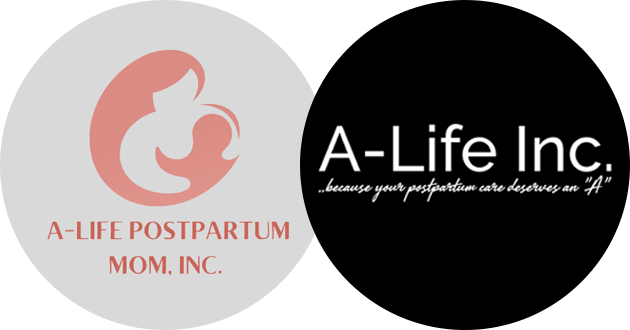Postpartum Constipation
Why No One Talks About It
Systemic Narcotics during labor for postpartum pain can slow down your digestive system and cause constipation.
Postpartum Constipation is one of those things no one really talks about, I wonder why? We have some helpful insights and reassurance that it happens more commonly than you think during the postpartum period. The postpartum period is the first six weeks after giving birth. Constipation occurs in your digestive system. It's when you have inconsistent and uncomfortable bowel movements which can be very hard and painful to pass. Whether vaginal delivery or cesarean delivery which is extensive abdominal surgery. During and after pregnancy your body is adjusting to all the changes, stretching, and shifting it’s gone through. It is trying to heal itself, most postpartum constipation gets better on its own, while some cases may be a little more serious and require a doctor to prescribe medication to get rid of constipation.
What causes constipation?
The causes of constipation include:
Absence of fiber in the diet
Lack of water (eating fiber with not enough water in your system could lead to constipation)
Some medications can lead to constipation such as iron supplements
Pregnancy overall during pregnancy your baby applies pressure to your intestines and changes in your hormonal levels can cause constipation
Not exercising, no movement, or benign restricted can cause constipation
Irritable bowel syndrome
Damage to the anal sphincter or pelvic floor muscles ( the stretching during labor and delivery makes it more difficult for the body to move your bowels.
What are symptoms of constipation?
The symptoms of constipation include:
Painful bowel movement
Straining too much during bowel movement
Cramping in your stomach or intestines
Taking longer than usual to move your bowels
Bloating
What can be done to relieve or prevent postpartum constipation?
Studies show these remedies can help with constipation:
Drinking lots of water and caffeine free liquids.
Increase your fiber intake with ( grains, brans, lentils, beans, pears, prunes which are a natural laxative, cherries, peaches, plums, apricots, and watermelon.
Increase movement, walking, gentle squats as long as it's not painful.
Over the counter laxatives work psyllium, and methylcellulose, these are insoluble fibers which are fiber supplements and a good option for constipation. Bisacodyl, senna and castor oil.
Taking stool softeners like colase which is an over-the-counter stool softener
Try magnesium citrate which increases the amount of water in the digestive tract this will help with bowel movement.
What are some of the complications of postpartum constipation?
Rectal prolapse (which is caused by repeated straining of trying to move your bowels this can result in a part of the rectal lining coming out of the anus.
Hemorrhoids straining too much when moving your bowels can damage the blood vessels in your rectum
Fecal impaction is when your rectum is full with stool that the muscles around your rectum are unable to push it out
Constant straining while emptying your bowels will weaken your pelvic floor muscles which causes involuntary passing of urine.
Constipation can occur the first few days following childbirth, this condition can last a week or longer until your body elimination system gets back on track. It can last up to six months postpartum.
Contact your OB/GYN if you are experiencing postpartum constipation and cannot get relief.
TRUTH MOMENT
With my most recent pregnancy I experienced postpartum constipation, it started around the fifth day of postpartum. I had a cesarean delivery while in the hospital I was given stool softener, to help with my bowel movement. Unfortunately, I did not move my bowels during my three day hospital stay. When it was time to be discharged the nurses asked me if I moved my bowels and I told them no. The nurse said that’s normal, it could take a little time, she said my body is healing and I just had major abdominal surgery so things will eventually regulate. They gave me a prescription for stool softeners so I would not have to purchase it out of pocket. Two days after being home with my baby, I finally needed to move my bowels. But I was in for a rude awakening, the first bowel movement was one of the worst experiences of my life. I could not go, so I sat on the toilet for hours. I had to call my mom for help, she came all the way from her home. She made some suggestions, but it did not help. I was running out of options, my rectum was in pain. I sat there for hours while she tended to my baby. I actually fell asleep on the toilet after sitting there for almost four hours. It was right there ready to come out but stuck. OMG it was horrible, but after the first bowel movement I began using the bathroom regularly. I completely changed my diet, increasing more fiber, adding magnesium and more leafy greens to my diet. Our suggestions we listed above really do help.
A-Life Postpartum Mom does not provide medical advice, diagnosis, or treatment. The resources provided on our website are for informational purposes only. We are not medical professionals, and you should always consult with your doctor for diagnosis.
Sources:
https://www.health.com/conditions/pregnancy/poop-changes-after-having-baby
https://www.healthline.com/health/pregnancy/postpartum-constipation
https://www.webmd.com/baby/what-to-know-about-postpartum-constipation
https://itsbodily.com/blogs/birth-recovery-postpartum/postpartum-constipation-how-long-hydration
https://www.cochranlibrary.com/cdsr/doi/10.1002/14651858.CD010273.pub2/epdf/standard
Takeaway
Postpartum Constipation in common for new moms. Most constipation will get better on its own with daily diet and exercise changes.
